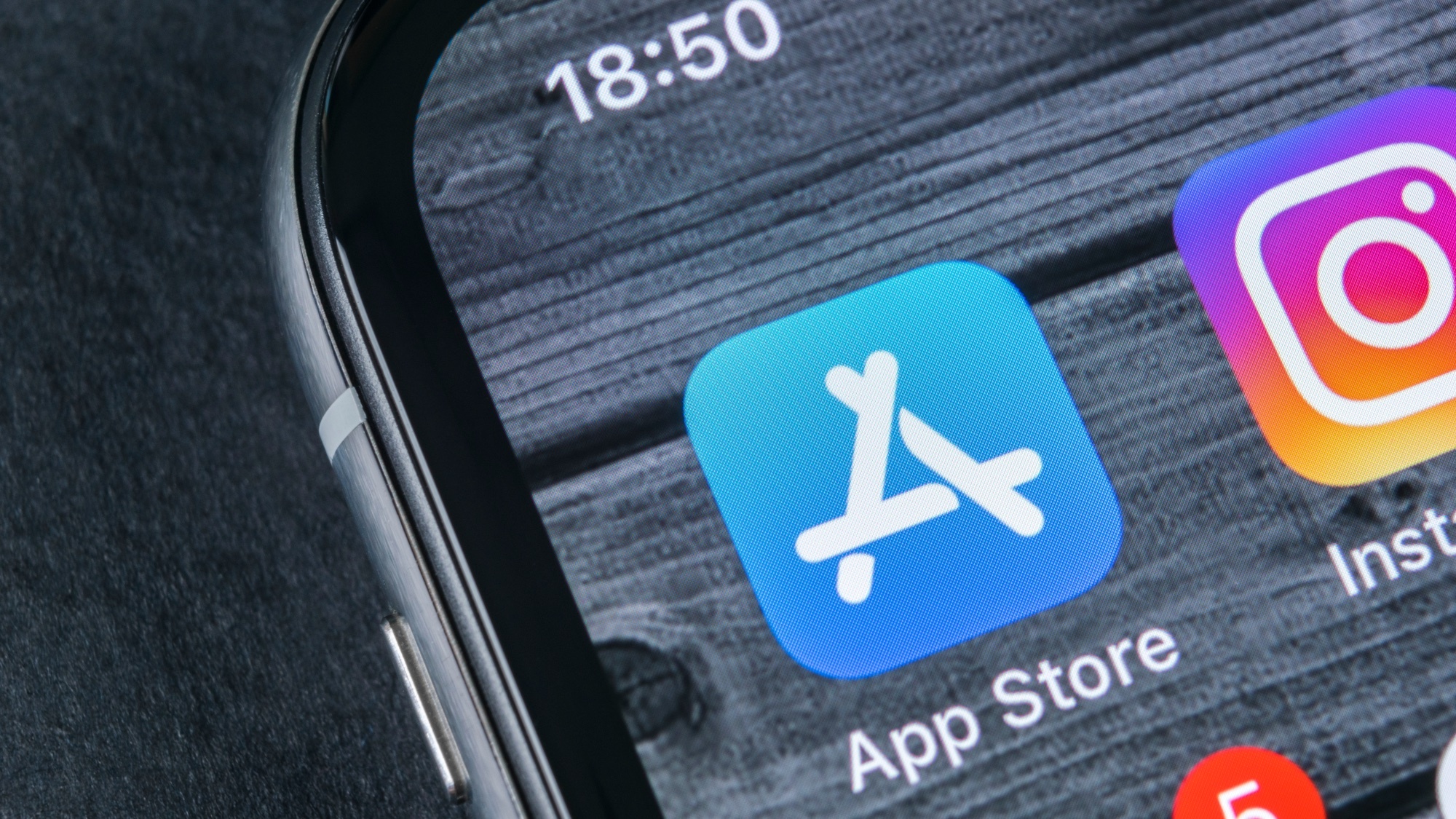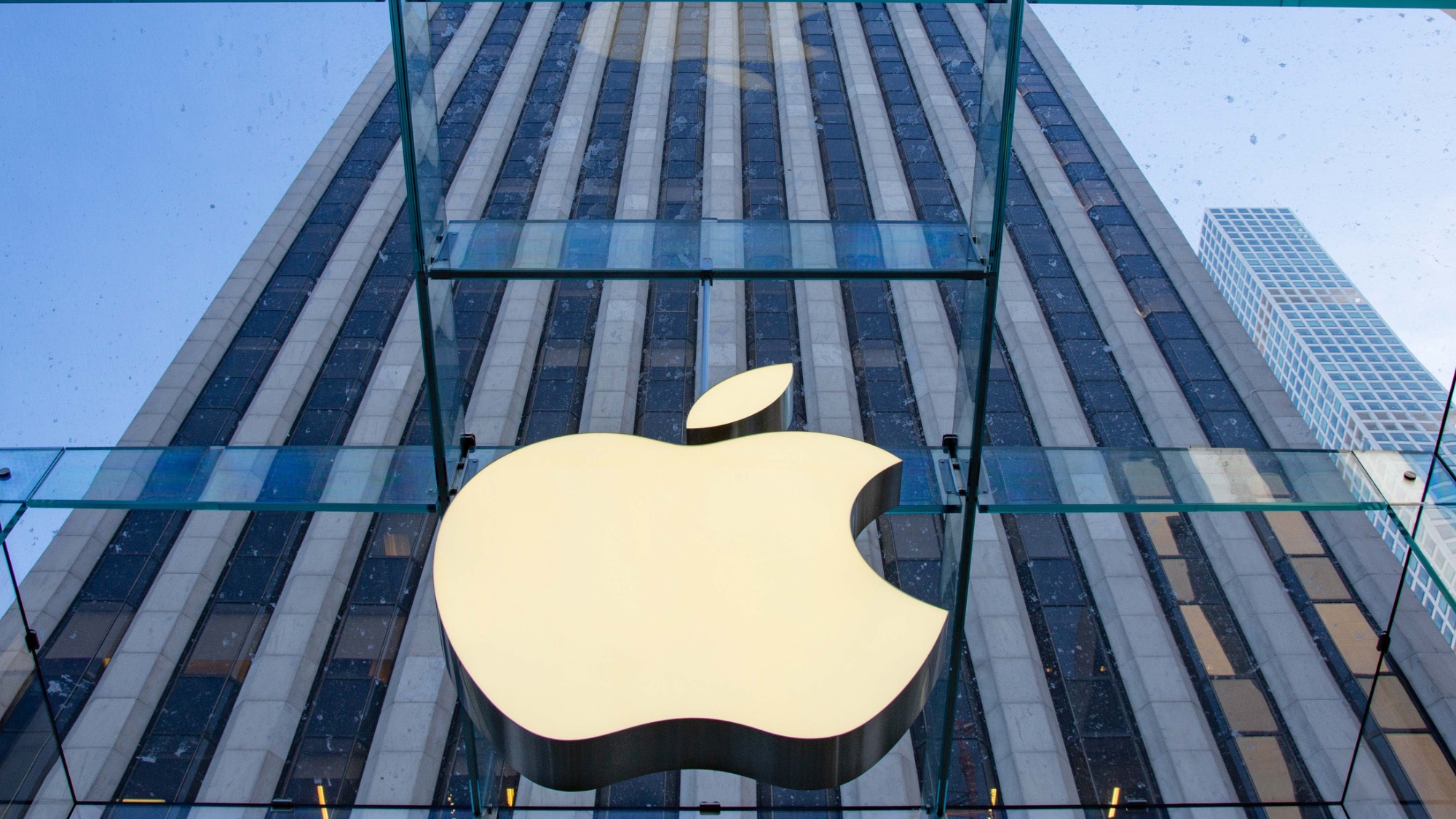Apple's being ordered to change App Store rules by a US Judge — what that means for you
Apple found to be in violation of a 2021 injunction

The App Store is about to change, and this time it's not because of the EU. Apple has announced plans to change the rules of the App Store in the U.S. this time. It's all thanks to a court ruling in the company's ongoing feud with Fortnite developer Epic Games.
In a ruling yesterday, Apple was found to be in violation of a 2021 injunction allowing developers to direct users to third-party off-app payment options using in-app links.
That injunction came about as a result of an antitrust lawsuit brought by Epic Games. Epic wasn't happy with the way Apple always took a 30% cut of all in-app purchases, and attempted to circumvent the rules on iOS and Android back in 2020. Google and Apple responded by pulling Fortnite from their app stores, resulting in Epic suing.
Judge Yvonne Gonzalez-Rogers ruled that Apple could not restrict alternative payment methods for app-related purchases. However Apple continued to charge developers a commission on sales outside the App Store, ranging from 12 to 27%.
Epic complained to the courts, and asked that Apple be held in contempt, despite Apple arguing that it was being fully compliant. Evidently the judge did not agree.
What the ruling says
In the initial ruling the courts found that Apple's 30% commission "allowed to to reap supracompetitive operating margins" that weren't tied to its own intellectual property — making it anticompetitive.
Apple's response, according to Gonzales-Rogers, was to "charge a 27 percent commission (again tied to nothing) on off-app purchases, where it had previously charged nothing, and extend the commission for a period of seven days after the consumer linked-out of the app". This was described as Apple attempting to "maintain its anticompetitive revenue stream".
Get instant access to breaking news, the hottest reviews, great deals and helpful tips.
The judge also ruled that after the court prohibited Apple "from denying developers the ability to communicate with, and direct consumers to, other purchasing mechanisms".
But instead of offering this Apple was found to have "imposed new barriers and new requirements to increase friction and increase breakage rates with full page "scare" screens, static URLs, and generic statements." With the aim of dissuading users from spending through alternative payment methods.
“Apple’s continued attempts to interfere with competition will not be tolerated,” Gonzalez Rogers said. This is an injunction, not a negotiation. There are no do-overs once a party wilfully disregards a court order.“
What happens now?

Apple has said it will be appealing the decision, but will comply with the ruling until that runs its course. In a statement to MacRumors the company said "We strongly disagree with the decision. We will comply with the court's order and we will appeal."
Until then, the court rules that Apple has to stick with the following terms, because Judge Gonzales-Rogers declared that the court "will not tolerate further delays," and "Apple will not impede competition."
- Imposing any commission or any fee on purchases that consumers make outside an app, and as a consequence thereof, no reason exists to audit, monitor, track or require developers to report purchases or any other activity that consumers make outside an app;
- Restricting or conditioning developers' style, language, formatting, quantity, flow or placement of links for purchases outside an app;
- Prohibiting or limiting the use of buttons or other calls to action, or otherwise conditioning the content, style, language, formatting, flow or placement of these devices for purchases outside an app;
- Excluding certain categories of apps and developers from obtaining link access;
- Interfering with consumers' choice to proceed in or out of an app by using anything other than a neutral message apprising users that they are going to a third-party site;
- Restricting a developer's use of dynamic links that bring consumers to a specific product page in a logged-in state rather than to a statically defined page, including restricting apps from passing on product details, user details or other information that refers to the user intending to make a purchase
This feels like a win for consumers

Epic Games CEO Tim Sweeney has called this ruling a "significant win for developers and consumers," adding that, "It forces Apple to compete with other payment services rather than blocking them, and this is what we wanted all along."
And he could be right. For starters cutting commission for off-app purchases could mean lower prices. The fact is developers don't want to eat into their own profits by paying almost a third to Apple (or Google), so those costs get passed onto the consumers.
Cutting commission for off-app purchases could mean lower prices.
Epic Games did this with Fortnite, back before it started feuding with Apple in court. While payments through the App Store may still carry those extra charges, the option to get cheaper prices by clicking an in-app link means you pay less.
The second is that the process of buying stuff on your iPhone gets easier. Apple's been told to stop putting up barriers for developers trying to direct users to alternative payment systems.
That should mean they have better opportunity to send you to those cheaper payments, and without Apple's alleged scaremongering tactics trying to send you back to the App Store.
For services like Netflix, which don't offer App Store payments anymore, this essentially makes it a lot simpler to subscribe. Because the app can take you to the payment page on the web, rather than asking you to do it yourself.
The other bonus for gamers, and confirmed by Tim Sweeney on X, is that Fortnite will be returning to the U.S. App Store next week.
He also declared that "If Apple extends the court's friction-free, Apple-tax-free framework worldwide, we'll return Fortnite to the App Store worldwide and drop current and future litigation on the topic."
More from Tom's Guide
- Gemini might be coming to your iPhone before the end of the year — here's what we know
- iPhone 17 Air isn’t what the iPhone family needs — Apple should have tried this with the mini and Plus
- Is Apple playing the waiting game? Smartwatches still lack key health feature

Tom is the Tom's Guide's UK Phones Editor, tackling the latest smartphone news and vocally expressing his opinions about upcoming features or changes. It's long way from his days as editor of Gizmodo UK, when pretty much everything was on the table. He’s usually found trying to squeeze another giant Lego set onto the shelf, draining very large cups of coffee, or complaining about how terrible his Smart TV is.
You must confirm your public display name before commenting
Please logout and then login again, you will then be prompted to enter your display name.
 Club Benefits
Club Benefits





